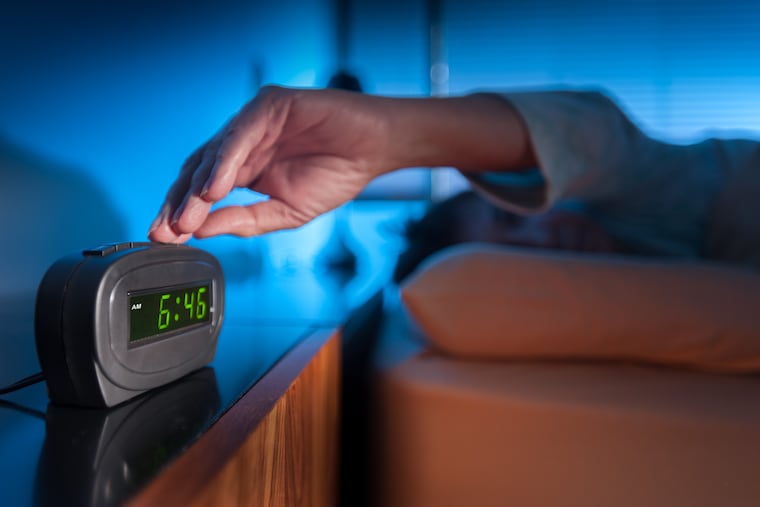How does sleep deprivation impact your life? | Expert Opinion
Tips from a sleep doc on how to get through the next day.

A study published in November in the journal JAMA found that nearly half of American adults are sleep-deprived. This occurs due to lack of sleep or poor-quality sleep. Most adults need seven to eight hours of good-quality sleep a night for good health.
Sleep deprivation can lead to feeling tired, fatigued, and groggy. But that’s not all. Research shows that sleep deprivation is associated with adverse effects involving almost all bodily functions. To name a few, sleep deprivation results in significant changes in cognitive function with difficulties reported in short-term memory, learning, attention, reaction, and decision making. It is also associated with irritability, low energy, poor mood, and decreased libido.
In turn, these issues can negatively affect quality of life and relationships, and may increase the risk of accidents. The negative influences of sleep deprivation on performance and function are almost identical to being under the influence of alcohol.
» READ MORE: Better sleep for kids starts with better sleep for parents — especially after holiday disruptions to routines
Sleep deprivation can also have physical effects, impairing one’s immune system, exercise endurance, and metabolism. Research has even shown that sleep-deprived individuals may have more difficulty controlling diabetes and weight.
A night or two of sleep loss can be managed without significant health consequences.
As a sleep doctor, I have these tips for getting through the day after a night of bad sleep:
Any sleep is better than no sleep. Take a short nap, if possible. A 15- to 20-minute nap will give you a nice boost while avoiding the “sleep drunkenness” that occurs after a long nap, especially if you need to perform a particular task immediately after the nap.
If a nap isn’t an option, strategic timing of caffeine or energy drinks (without being excessive) will help performance. I say “strategic” because, if taken at the wrong time, such as late in the evening, these stimulants will interfere with sleep later on. This is a short-term fix — caffeine cannot replace sleep in the long run.
Avoid using other substances to maintain alertness, unless they are prescribed by a specialist. Many of these substances, such as amphetamines and other stimulant drugs, are addictive and may cause more harm if not given under controlled and supervised circumstances.
Allow yourself extra time to recover after sleep deprivation. Remember that sometimes it may take more than one night of good sleep to fully recover.
Adopt good sleep habits to avoid chronic sleep deprivation: Avoid late meals, and limit light, screen time, and excitement before bedtime. If you believe hat you have reasonable sleep habits and still have excessive sleepiness and poor sleep, it is possible you have a sleep disorder and should seek help from a specialist.
Bottom line: Quality of sleep is as important as quantity of sleep.
» READ MORE: Sleep experts are rethinking their beliefs about night owls. Thank the pandemic.
If you find you can’t shake feelings of sleepiness or you can’t have a restful night of sleep, consult your health-care provider, who can evaluate you for sleep disorders, such as sleep apnea, restless leg syndrome, insomnia, or other medical and psychiatric conditions that can interfere with sleep and require treatment.
Wissam Chatila is a pulmonologist who specializes in sleep medicine at Temple Lung Center and professor of thoracic medicine and surgery at the Lewis Katz School of Medicine at Temple University.